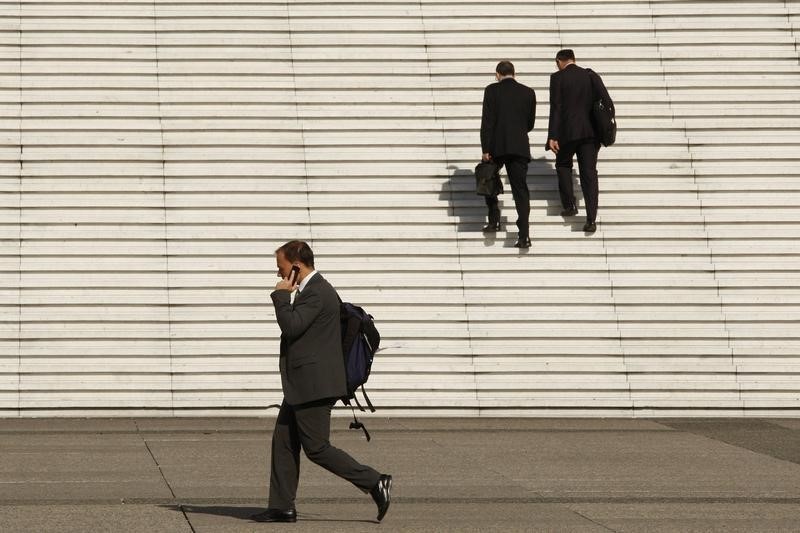By Libby George and Angela Ukomadu
LAGOS, March 12 (Reuters) - Businessmen in the Nigerian city
of Lagos typically broker deals over cognac or champagne. But,
on a sunny afternoon in the city's upmarket Victoria Island
business district, a clutch of men celebrated with steaming
coffee that cost 35,000 naira ($114) for a three-cup brew.
Jamaica Blue Mountain, the gourmet variety they imbibed, is
coveted around the world for its superior quality.
Ibrahim Samande, owner of the Mai Shayi Coffee cafe that
sold the drink, knows not everyone can afford the splurge. But
he believes cachet and ceremony, and attractive spaces to enjoy
a cup, will lure more of Nigeria's 200 million people to drink
coffee.
At present, Nigerians drink only a tiny amount of coffee.
Tea or cocoa are the hot drinks of choice, and are forecast to
account for close to 40% of Nigeria's non-alcoholic drink
spending by 2023, according to research body Fitch Solutions. By
contrast, spending on coffee is seen only at 2.5 percent.
Samande is among a new breed of entrepreneurs hoping to cash
in on coffee. They are betting that wealthy Nigerians will
cultivate a cafe culture that can also spur consumption of
locally grown crops.
"Nigeria is a very aspirational society," Samande said. "And
it's very easy for things to catch on."
Consumption is rising; the retail value of coffee sold has
nearly tripled since 2010 to $29 million last year, according to
Euromonitor.
But it is still a market in its infancy. Kenya, with a
quarter the number of people as Nigeria, consumes close to the
same amount of coffee, and spent $11 million more on the drink
last year. Meanwhile South Africa consumed more than six times
as much coffee as Nigeria and spent 9 times as much.
In a country where the majority live on less than $2 a day,
most Nigerian coffee-drinkers opt for bitter cups of instant
coffee that street vendors hawk for 100 naira, just a few cents.
International coffeeshop chains have yet to enter the
country significantly, although there are a few domestic chains.
Nigeria's Cafe Neo has several locations in Lagos, and Happy
Coffee also aims to bring coffee to the masses.
Samande, whose grandmother roasted her own beans with
cardamom and ginger, believes that brewing with imported Italian
Moka pots, Japanese siphons and American Chemex coffeemakers can
convince Nigerians to drink higher-quality coffee.
Coffee is one of the world's most-traded commodities, he
said. "I think there's room for us to plug into that sort of
supply chain."
He buys Nigerian beans from Kim's Coffee, a roaster around
1,000 kilometres (621.37 miles) to the north of Lagos. Kim's
founder David Dayi said strong demand saw them roast 3 tonnes of
locally grown coffee last year - triple the 2017 level.
Dayi said Nigeria could easily grow more coffee -- and that
local consumption could help spur this.
Dr. Nasra Ali, a Kenyan who founded Lagos-based Kaldi Coffee
Ltd in 2014, said luring Nigerians who had only tasted bitter
instant coffee was tough.
Ali, who grew up on a Kenyan coffee farm, focuses on selling
high-quality beans and serving them correctly.
Kaldi buys Nigerian beans from the eastern state of Taraba.
It also trains baristas and sells grinders and espresso
machines. Its roastery capacity has grown from 10 tonnes in 2016
to 50 tonnes today.
"It's a gradual, steady growth every year," she said. "More
and more young Nigerians appreciate the benefits of coffee and
the different ways that it can be consumed."
($1 = 306.4000 naira)
Retail Value of Coffee Sales png https://tmsnrt.rs/3cPu8c5
Nigeria's Coffee Production https://tmsnrt.rs/3cI1LN3
Nigeria's Growing Coffee Consumption https://tmsnrt.rs/2IG1Anj
^^^^^^^^^^^^^^^^^^^^^^^^^^^^^^^^^^^^^^^^^^^^^^^^^^^^^^^^^^^>
